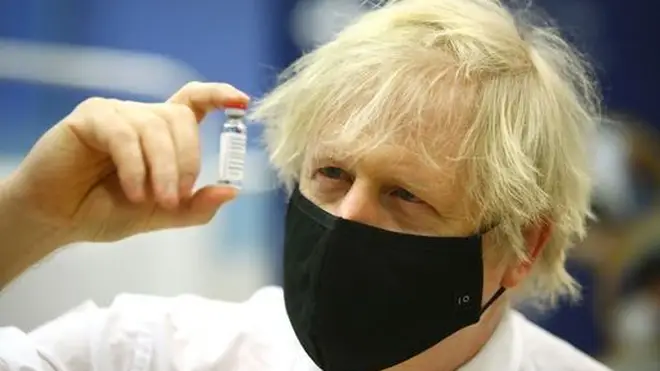
Ian Payne 4am - 7am
18 March 2021, 16:18 | Updated: 18 March 2021, 22:06

The European Medicines Agency has ruled that the Oxford AstraZeneca Covid-19 jab is a "safe and effective vaccine"
Emer Cooke, EMA executive director, says the committee has found that the benefits outweigh any possible risks.
The jab is not associated with an increase in the overall risk of thromboembolic events or blood clots, but based on available evidence, “we still cannot rule out definitively a link between these [blood clot] cases and the vaccine”.
Cooke adds that the AstraZeneca jab demonstrated at least a 60% efficacy in preventing coronavirus disease.
Cooke said: “During the investigation and review we began to see a small number of cases of rare and unusual but very serious clotting disorders and this then triggered a more focused review.
“Based on the available evidence and after days of in-depth analysis of lab results, clinical reports, autopsy reports and further information from the clinical trial we still cannot rule rule out definitively a link between these [blood clot] cases and the vaccine”.

Matt Hancock reveals reasons behind slower April Covid vaccine supply
As the EMA still could not rule this out it is therefore “recommending to raise awareness of these possible risks, making sure that they’re included in the product information”.
Decisions to suspend use of the vaccine by 13 EU states had sparked concerns.
Dr Sabine Strauss, chair of the EMA vaccine safety committee, said it has found “no evidence of a quality or a batch issue”.
She added the EMA found there is no higher overall risk of blood clots occurring after being vaccinated. In fact it likely reduces the likelihood.
READ MORE: No proven link between AstraZeneca jab and blood clots, says UK regulator
READ MORE: 1.7m doses need re-testing and supplies from India delayed, Matt Hancock confirms
This comes after the UK's medicines regulator today said the benefits of the AstraZeneca jab "far outweigh the risks" and that evidence suggests the jab does not cause blood clots.
The Medicines and Healthcare products Regulatory Agency (MHRA) said: "Following a rigorous scientific review of all the available data, the evidence does not suggest that blood clots in veins are caused by Covid-19 Vaccine AstraZeneca.
"Following suspensions by some countries of the COVID-19 Vaccine AstraZeneca over suspected blood clots, the MHRA confirms that the benefits of the vaccine in preventing COVID-19 far outweigh the risks. "People should still go and get their COVID-19 vaccine when asked to do so."
There have also been warnings that the number of people getting their first dose of the coronavirus vaccine will be “constrained” from the end of March due to a “significant reduction” in supply.

Housing Secretary says there is 'no cause for concern' over Covid jab
A letter to regional NHS bosses has said this reduction in the vaccine supply will be over a "four-week period" from the week beginning March 29.
Local health leaders have been told to focus efforts on the top nine priority groups. This means that those aged 49 years or younger should not be offered vaccination "unless they are eligible via a higher cohort".
These vaccine supply issues have reportedly been caused by a shipment of five million doses, produced by the Serum Institute of India, being delayed at the behest of the Indian government.